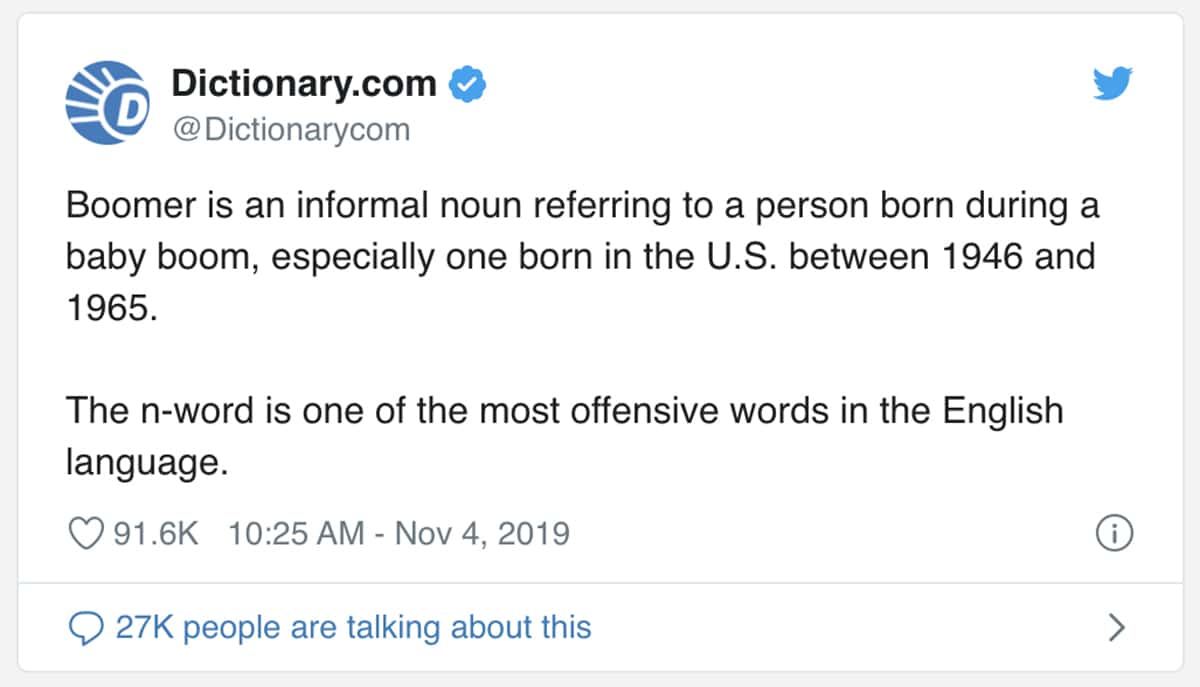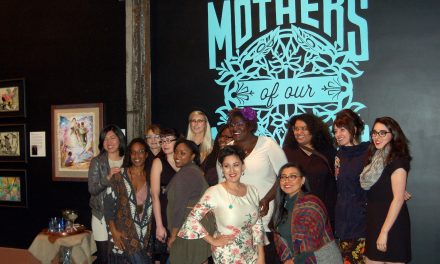
“‘Boomer’ is the n-word of ageism. Being hip and flip does not make bigotry ok, nor is a derisive epithet acceptable because it is now.” – A tweet by conservative radio show host Bob Lonsberry
Snowflake: As a term is used extensively as a putdown for someone, originally on the political left, who is easily offended or felt they needed a “safe space” away from the harsh realities of the world. With similar over-reactions from the political right, it has morphed into a general putdown for anyone that complains about any subject.
What exactly does OK boomer mean?
OK boomer is a viral internet slang phrase used, often in a humorous or ironic manner, to call out or dismiss out-of-touch or close-minded opinions associated with the baby boomer generation and older people more generally.
Where does OK boomer come from?
Boomer is an informal term for baby boomer, a person born during the baby boom (sharp increase in birthrates) after World War II. This generation generally includes anyone born in the US between 1946–65, a time of great economic prosperity.
“it took??? a month??? for government officials to ban vape products but we still have mass shootings here on the daily like ok boomer.” – @synodicbaby, September 2019
While many baby boomers were connected to youth counterculture in the 1960–70s, they have since become blamed in the 2010s by people in younger generations for many societal woes, from the high cost of college tuition to the failure to address climate change.
This blame has contributed to the negative connotation of boomer, which—as seen in a phrase like OK boomer—dismisses a person from that generation (and older people more generally) as out of touch, close-minded, and part of the problem.
“Thousands of teens and 20-somethings on TikTok have subverted the rant with the phrase “OK, boomer,” explaining the reasons why their generation has ultimately dismissed the concerns of young people, dressing up in clown make-up, or simply, writing “OK, boomer” in a multitude of creative ways.” – @rachsyme, November 2019
The specific slang expression OK boomer took off in early 2019, issued especially from millennials and Generation Z as a reply or reaction to older users (lumped together as baby boomers) who posted content that condescended to younger generations or provoked their sensibilities.
It’s as if OK boomer says, “OK, you baby boomer. Go ahead and just keeping thinking your backwards, irrelevant thoughts that we’re just spoiled, tech-obsessed children when you’ve wrecked our job prospects and planet.”
“the reason “ok boomer” is such a great generational marker is it cleaves so neatly: boomers hate it, gen x will mock it, millennials will enthusiastically use it to the point of exhausting it without actually inventing it, and gen z has already moved on and thinks we are all nobs.” – Joshua Bate, USA Today, October 2019
In 2019, memes, merchandise, songs, and many social media posts all helped further spread OK boomer. Taylor Lorenz helped put OK boomer front and center in the internet discourse after her October 29 article in the New York Times called “‘OK Boomer’ Marks the End of Friendly Generational Relations.” In it, Lorenz writes:
“Ok boomer” has become Generation Z’s endlessly repeated retort to the problem of older people who just don’t get it, a rallying cry for millions of fed up kids. Teenagers use it to reply to cringey YouTube videos, Donald Trump tweets, and basically any person over 30 who says something condescending about young people — and the issues that matter to them.
Lorenz’s article created a lot of buzz around the phrase OK boomer, with some internet commentators noting how the phrase, as is often the case for slang online, had already gotten overused. Others, more controversially, took offense to OK boomer as ageist.
© Link
Originally published on Dictionary.com as Ok Boomer















